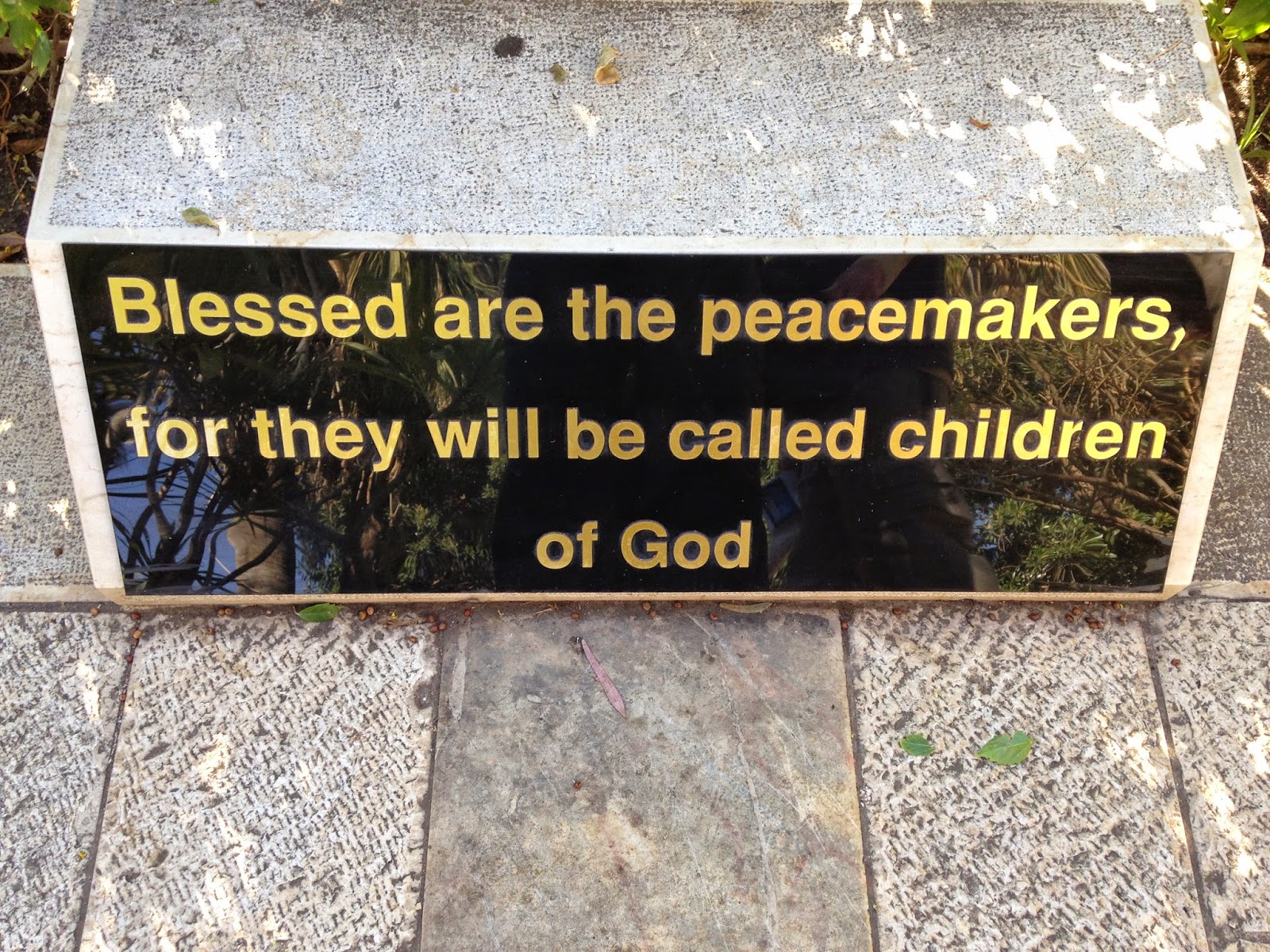Peace
 |
| Mount of the Beatitudes, Israel - October 2014 |
The theme for the second week of Advent is "peace," and who doesn't long for peace? It is one of the grandest hopes of humankind, and one which the angels specifically sang of when they announced the birth of Jesus. "Peace on earth, goodwill toward all!" We see signs either promising or hoping for peace all around this time of year. Retailers even use it as a marketing slogan. It's a universal longing, even among those who believe (wrongly) that is can come by force.
Peace is noticeably absent in our world today, as it has always been. Nations fight among nations. Terrorist groups hover and threaten. In fact, when we were preparing to go to the Middle East this past fall, I had several people ask me if I was still going, if I thought it was safe. And, not meaning to be flippant, I usually responded something along the lines of, "It's as safe as it's ever been." There has always been conflict there—and elsewhere as well. (In fact, there are times I feel safer walking along the streets of Jerusalem than I do in certain parts of Chicago!)
But peace is not just absent in international matters. Peace is absent in our homes, in our schools, in our media, in our churches. Families fight one another, arguments end up in fistfights in our schools and cities, families are torn apart, and many today seem to be offended at the smallest slight. We long for peace.
And then we settle for far too little. We settle for the "absence of conflict" and call it peace. If no one is fighting in our home or in our workplace, we call it "peace." But it might not be peace. It might just be the "calm before the storm." It might be folks harboring anger and resentment and letting it "boil" until it overflows. True peace is not just the absence of conflict. True peace, the peace promised by Advent and by the coming of Jesus, is actually shalom, a Hebrew word that is better translated as "wholeness" or "harmony." It is life lived the way it's meant to be, life lived in harmony with God and one another. Not harboring resentments. Seeking the best for each other. Not living purely for selfish motives. Living for the sake of God and for others.
It was this idea Jesus had in mind when he said, "Blessed are the peacemakers" (Matthew 5:9). He wasn't just talking about the folks who grab headlines because they broker some deal between this nation and that. He was talking about anyone who is willing to seek to live in harmony with others, to seek to live life the way God intended, to live a "whole" life, not a fractured one. Those who seek such peace are truly blessed because they know what it is to live life the way the creator of life designed it to be lived.
I've not always been very good at peacemaking. I'm often quick to judge and in a hurry to argue. But over the last few years and especially the last few months, God has been working on me in this area. I've been in situations where there has been constant conflict, people who seem to like conflict or even thrive on it, folks who fight before talking, and my heart is broken by each and every situation. "What a waste," I found myself thinking in the midst of one such situation the other day. "What a waste of a life." Conflict doesn't lead to peace. Conflict may lead, eventually, to a brief absence of conflict, but what truly brings peace is only Jesus. He is, after all, the Prince of Peace.
When Jesus says, "Blessed are the peacemakers," he's saying, in essence, "Blessed are those who model their lives after me." He is, after all, the one who prayed for those who were nailing him to the cross: "Father, forgive them, for they don't know what they are doing." If that isn't a picture of shalom, I don't know what is.
Blessed are the peacemakers. This Advent season, once again, I want to be blessed in that way. I want to be a peacemaker, finding myself and helping others find a better way to live—the way of Jesus, the prince of peace.



Comments
Post a Comment